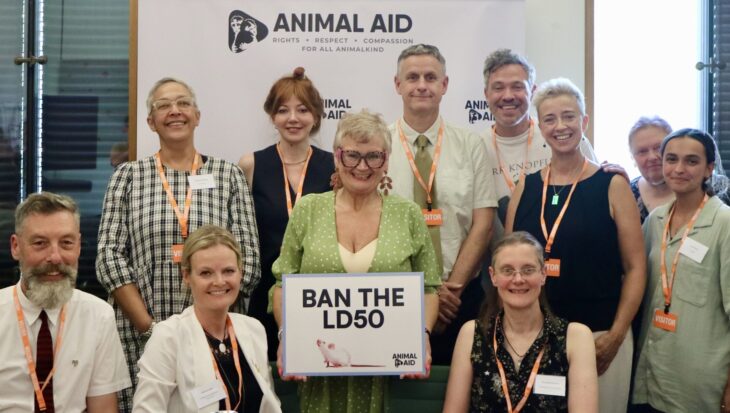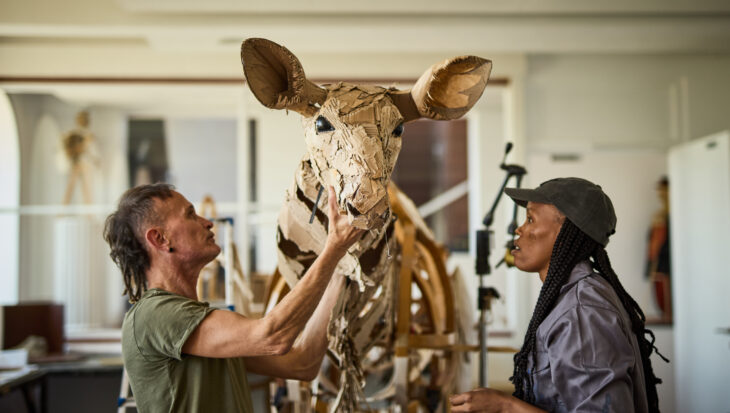Animal Aid in parliament to discuss ending animal tests
Yesterday, Animal Aid hosted a roundtable in Westminster, to meet with MPs and other invited guests to discuss the ending the LD50 and other animal tests.
Posted 02 Jul 2025

Posted on the 9th July 2024
On Wednesday the 3rd of July, we visited the bustling city of Manchester to chat with members of the public about the issue of animal experiments conducted at the University of Manchester. According to the latest figures from 2023, the university harmed 110,885 animals in experiments. This figure represents a shocking seven-year high.

The disturbing rise in animal experiments at the University of Manchester is exemplified by one particularly gruesome experiment involving pregnant rats. In this cruel experiment, pregnant rats endured immense suffering and distress. The rats were deliberately injected with a substance to mimic a virus, administered via injections directly into their abdomens. This caused their bodies to release chemicals that are known to induce pain. At the end of the experiment, the female rats were killed via exsanguination – extreme blood loss – and their unborn babies via decapitation (having their heads cut off). Shockingly, this research was not required by law and, due to the unreliability of animal experiments, inflicting prolonged suffering on the rats would have been for questionable gains.
The experiment in brief:
Animal experiments often fail to translate to humans because there are significant physiological and genetic differences between species. Rats are much smaller than humans, have different metabolic rates, immunological functions, and body structures. Rats and humans have differences in terms of placental structure, how the body of the mother and baby interact, and how the food sac for the baby works within the mother’s body. This means rat pregnancies are different to human pregnancies. Such interspecies differences render it highly problematic to assume that a viral reaction in rats would be the same in humans. This harrowing experiment stands as a stark example of the extremes of animal cruelty that can occur in the name of ‘research’, at some universities.
Daisy Hall, Campaign Manager, says:
‘The alarming seven-year high in animal research at the University of Manchester is extremely concerning especially when coupled with the disturbing details of experiments like the one inflicting immense suffering on pregnant rats and their unborn young. Not only are animal experiments extremely cruel, but they are also unreliable, outdated science. It is wholly unacceptable to subject sentient beings to brief, pain-filled lives when there are non-animal methods available. We strongly encourage the university to re-evaluate its reliance on animal research and commit to a complete phase-out of all animal experimentation.’
If you would like to find out more about animal experiments happening at British universities, please visit www.universitieschallenged.org.uk. You can sign up to get involved in outreach at www.universitieschallenged.org.uk/sign-up.
Yesterday, Animal Aid hosted a roundtable in Westminster, to meet with MPs and other invited guests to discuss the ending the LD50 and other animal tests.
Posted 02 Jul 2025

Have you heard? A breathtaking arts initiative, ‘The Herds’ will be arriving in London this Friday.
Posted 27 Jun 2025
